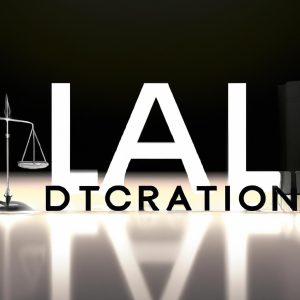As we journey through life, many of us diligently save and invest our hard-earned money, with hopes of enjoying the fruits of our labor in our golden years. However, the looming threat of long-term care expenses can quickly diminish our savings if not properly prepared for. As experienced legal professionals at Morgan Legal Group, located in the heart of New York City, we often witness the devastating financial consequences that nursing home costs can have on individuals and their families. In this article, we will provide valuable insights on how to protect your savings from the potentially exorbitant expenses of nursing home care, ensuring that your financial legacy remains intact for generations to come.
Strategies for Preserving Savings Amid Rising Nursing Home Costs
In order to navigate the rising costs of nursing home care and protect your hard-earned savings, it is crucial to implement strategic financial planning. Here are some effective strategies to help safeguard your assets:
- Long-Term Care Insurance: Consider purchasing a long-term care insurance policy to help cover the costs of nursing home care.
- Asset Protection Trust: Establishing an asset protection trust can shield your assets from potential creditors, including nursing homes.
- Medicaid Planning: Work with an experienced elder law attorney to develop a Medicaid plan that can help cover the costs of long-term care while preserving your savings.

Understanding the Medicaid Lookback Period and Its Implications
When it comes to safeguarding your hard-earned savings from the potential costs of nursing home care, understanding the Medicaid lookback period is crucial. This period refers to the timeframe during which Medicaid examines your financial transactions to ensure that you have not transferred assets in order to qualify for benefits. The implications of not planning ahead and falling within this lookback period can be financially devastating for both you and your loved ones.
One effective way to protect your savings is through proper estate planning. By working with experienced professionals, such as the team at Morgan Legal Group in New York City, you can explore various legal strategies to safeguard your assets from Medicaid’s stringent rules. Creating trusts, establishing gifting plans, and incorporating asset protection strategies into your estate plan can help you navigate the complexities of Medicaid while preserving your wealth for future generations.

Maximizing Asset Protection Through Trusts and Estate Planning
Protecting Your Savings From Nursing Home Costs
When it comes to safeguarding your hard-earned assets from the astronomical costs of nursing home care, utilizing trusts and estate planning strategies can be a highly effective solution. By establishing an irrevocable trust, you can protect your savings and property from being depleted by long-term care expenses while still maintaining some control over your assets. This type of trust can also help you qualify for Medicaid benefits, which can provide much-needed financial assistance for nursing home costs.
Another key aspect of is ensuring that your estate plan is comprehensive and up to date. This includes creating a durable power of attorney, healthcare proxy, and living will to designate someone to make financial and medical decisions on your behalf if you become incapacitated. By working with an experienced estate planning attorney, you can tailor your plan to your specific needs and goals, ultimately giving you peace of mind knowing that your assets are protected for yourself and your loved ones.

Navigating the Complexities of Long-Term Care Insurance
In today’s rapidly changing world, planning for the future is more important than ever. Long-term care insurance offers a valuable solution to protect your savings from the potentially devastating costs of nursing home care. By understanding the complexities of long-term care insurance, you can navigate the system effectively and safeguard your financial well-being.
One key consideration when exploring long-term care insurance is the level of coverage needed. Carefully evaluate your current financial situation and potential future needs to determine the appropriate amount of coverage. Additionally, consider any existing assets or income sources that could help supplement your long-term care insurance benefits. Planning ahead is crucial in ensuring that you have adequate protection in place when the time comes to utilize your policy.
Q&A
Q: How can I protect my savings from being depleted by nursing home costs?
A: Planning ahead is key when it comes to safeguarding your savings from nursing home expenses.
Q: What are some strategies for protecting my savings?
A: One strategy is to consider purchasing long-term care insurance to help cover the costs of nursing home care. Another option is to create a trust to hold your assets and protect them from being used for nursing home expenses.
Q: Are there any legal tools I can use to protect my savings?
A: Yes, you can work with an attorney to set up a durable power of attorney or a healthcare proxy to ensure someone you trust can make financial and healthcare decisions on your behalf if you become incapacitated and need nursing home care.
Q: Are there any government programs that can help with nursing home costs?
A: Medicaid is a government program that can help cover nursing home costs for eligible individuals. However, there are strict eligibility requirements, so it’s important to plan ahead and potentially explore other options as well.
Q: What steps can I take now to protect my savings for the future?
A: In addition to considering insurance and legal tools, it’s essential to budget wisely, invest sensibly, and regularly review your financial plan to ensure your savings are protected for any potential nursing home expenses down the road.
In Summary
In conclusion, safeguarding your savings from the potential financial strain of nursing home care requires careful planning and foresight. By exploring options such as long-term care insurance, creating a trust, or consulting with a financial advisor, you can take proactive steps to protect your hard-earned assets. Remember, securing your financial future is an essential part of aging gracefully and ensuring peace of mind for both you and your loved ones. So, take the necessary steps today to safeguard your savings and enjoy a worry-free retirement tomorrow.
 As we age, planning for our future becomes increasingly important. One aspect of this planning is ensuring that our savings and assets are protected from unforeseen events such as nursing home expenses. With the average cost of a private nursing home room in the United States reaching an alarming $102,200 per year, it is essential to take proactive steps to safeguard your hard-earned savings. In this article, we will discuss how to protect savings from nursing home, incorporating relevant tips, advice, and strategies.
As we age, planning for our future becomes increasingly important. One aspect of this planning is ensuring that our savings and assets are protected from unforeseen events such as nursing home expenses. With the average cost of a private nursing home room in the United States reaching an alarming $102,200 per year, it is essential to take proactive steps to safeguard your hard-earned savings. In this article, we will discuss how to protect savings from nursing home, incorporating relevant tips, advice, and strategies.
1. Prioritize Medicaid Planning
One of the most effective ways to protect savings from nursing home expenses is to engage in Medicaid planning. Medicaid is a government program that covers the costs of long-term care for low-income individuals. By engaging in Medicaid planning, you can legally and ethically protect your savings from being used for nursing home expenses while still qualifying for Medicaid. It involves transferring assets to a spouse or other family members, creating irrevocable trusts, and utilizing other legal strategies. It is advisable to start planning at least five years before you anticipate needing long-term care.
2. Consider Long-Term Care Insurance
Long-term care insurance is another option to protect your savings from nursing home expenses. It covers the costs of long-term care services, including nursing home care, at-home care, and assisted living facilities. Long-term care insurance can be expensive, but it could be a worthwhile investment if you anticipate needing long-term care in the future. It is advisable to purchase long-term care insurance at an earlier age when premiums are more affordable.
3. Understand Medicaid’s Look-Back Period
When engaging in Medicaid planning, it is crucial to understand the concept of the “look-back period.” It refers to the five-year period before applying for Medicaid when all of your financial transactions and assets will be reviewed. If there are any transfers or gifts made within this time frame, they could be subject to penalties and impact your eligibility for Medicaid. Therefore, it is essential to consult a financial advisor or elder law attorney before making any financial decisions that could affect your eligibility for Medicaid.
4. Explore Other Asset Protection Strategies
Aside from Medicaid planning and long-term care insurance, there are other strategies you could use to protect your savings from nursing home expenses. These include annuities, reverse mortgages, and asset protection trusts. Annuities, in particular, are a popular option that allows you to convert a lump sum of money into a stream of guaranteed payments. However, it is essential to understand the terms and conditions of annuity contracts carefully before purchasing one.
5. Create a Living Trust
A living trust is a legal document that allows you to transfer your assets to a trust while you are alive. By doing so, you still retain control and use of the assets, but they are legally owned by the trust. In the event that you require long-term care, the assets in the trust will not be used to cover nursing home expenses. They will, however, be protected for your beneficiaries. It is important to note that the trust document must be carefully drafted by an attorney to ensure it is legally sound and follows all necessary guidelines.
6. Consider the Five-Year Plan
Planning five years in advance is essential when it comes to protecting savings from nursing home expenses. This is because any transfers or gifts made before the five-year mark may be penalized by Medicaid. By adhering to a five-year plan, you can protect your assets and ensure that they will not be subject to penalties.
7. Seek Professional Guidance
Navigating the complexities of protecting your savings from nursing home expenses can be challenging. Therefore, it is essential to seek professional guidance from a financial advisor or elder law attorney who specializes in Medicaid planning and asset protection. They can provide valuable insights and expertise to help create a plan tailored to your specific needs and goals.
In conclusion, protecting your savings from nursing home expenses requires proactive planning and the utilization of various strategies. By prioritizing Medicaid planning, considering long-term care insurance, understanding the look-back period, exploring other asset protection strategies, creating a living trust, adhering to a five-year plan, and seeking professional guidance, you can effectively safeguard your savings and ensure a secure future for yourself and your loved ones. Remember, it is never too early to start planning for the future, so take the necessary steps now to protect your hard-earned savings and enjoy peace of mind.





